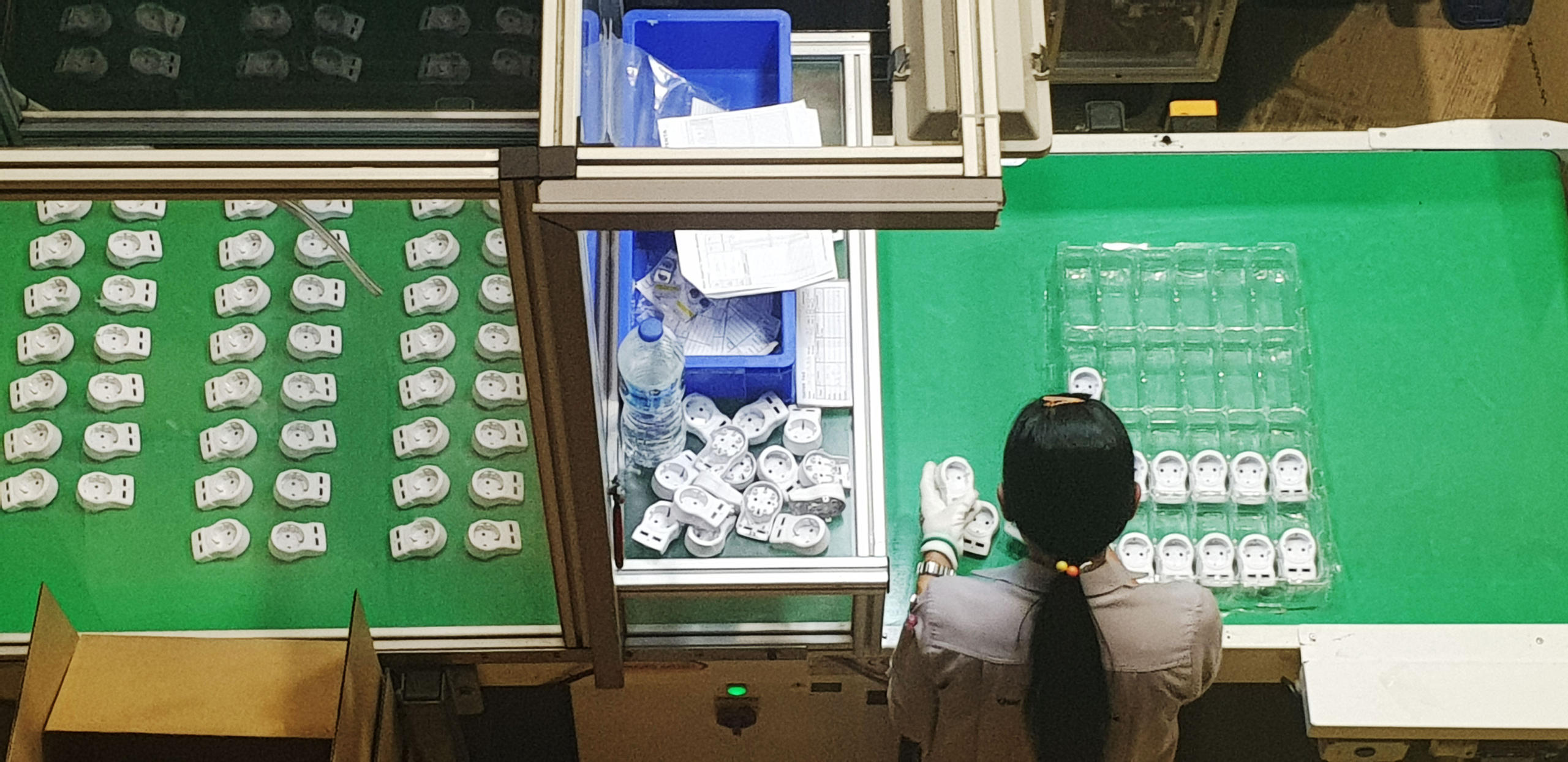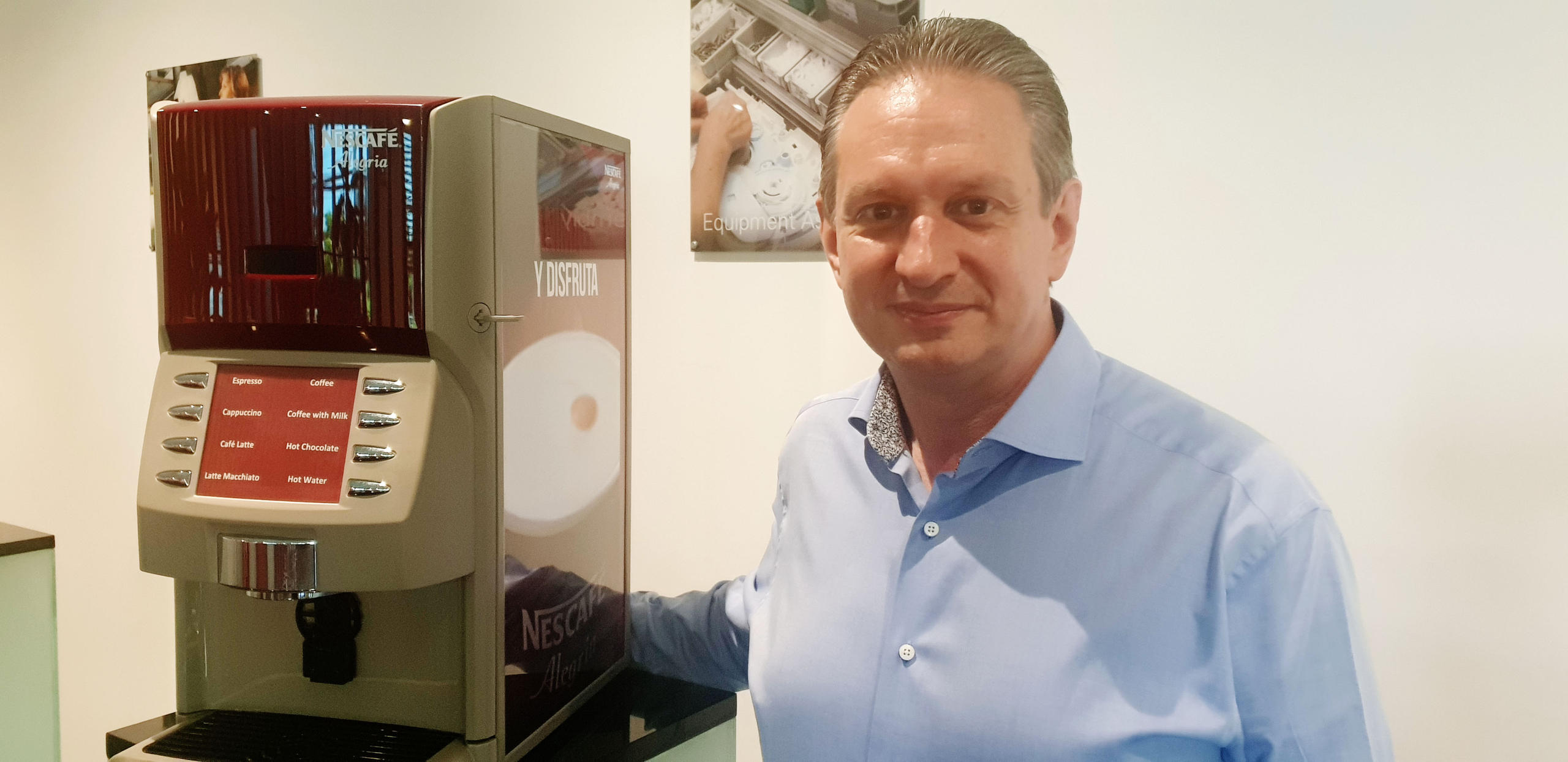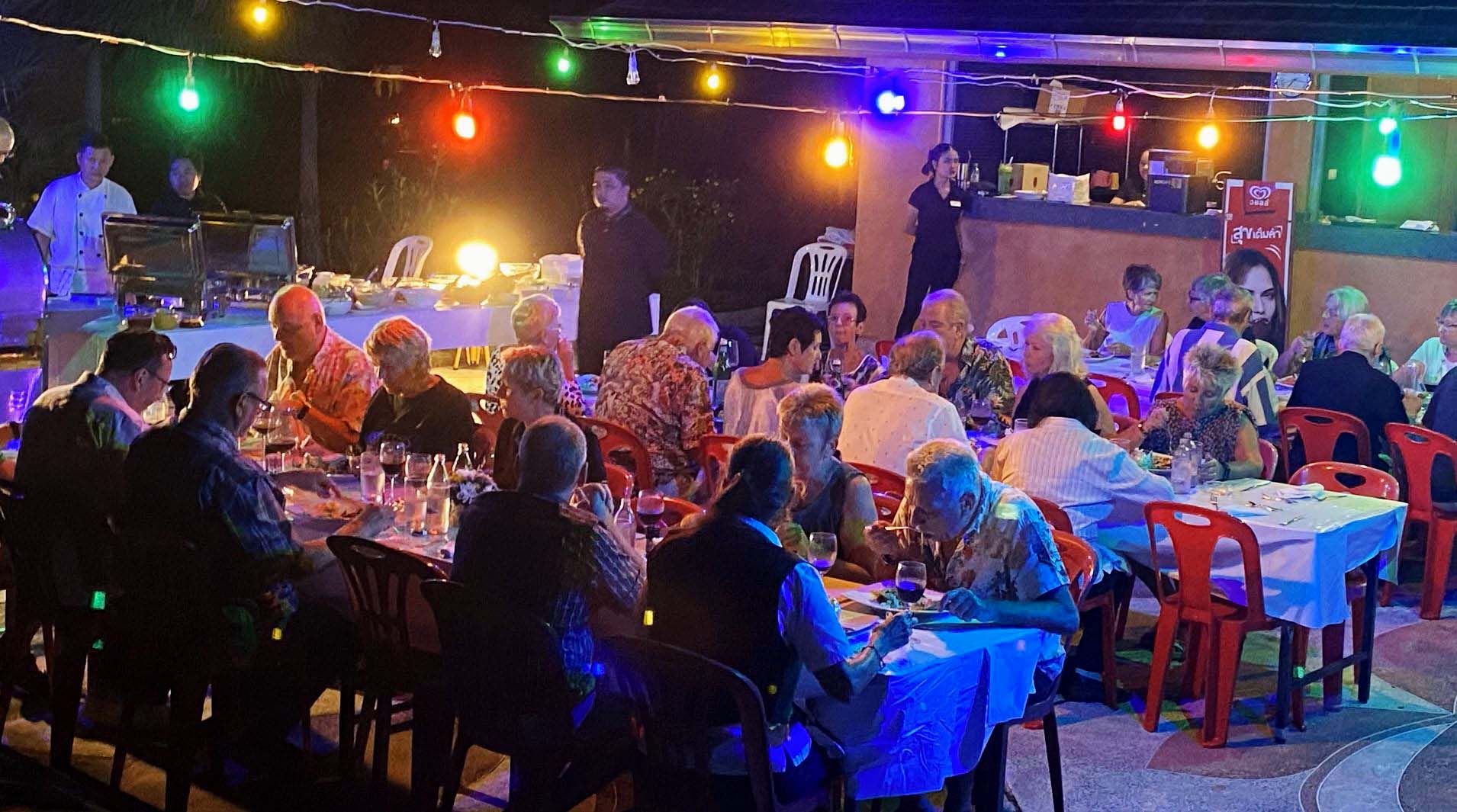Why Thailand is so appealing for Swiss businesses

Political and economic problems in China are forcing Western companies to look for alternative locations. One such alternative is Thailand, where Swiss companies have been operating for over a century.
How does David Stauffacher see China’s future? He frowns. “Who knows what’s yet to come?” Stauffacher is Executive Director of the Swiss-Thai Chamber of Commerce in Bangkok. He is not the only sceptical observer of China’s development.
For a long time, Western companies celebrated China as a land of unlimited opportunities. But the euphoria has now subsided. More and more companies are doubting the sustainability of their operations in Beijing or Shanghai.
“From a business point of view, China has become too uncertain,” says Stauffacher. A series of problems over the past few years have left their mark: restrictive policies to combat the Covid-19 pandemic, disrupted supply chains, rising labour costs and closed ports.
The problems run deep. China’s rulers face a growing mountain of debt and an ageing population. At the same time, Beijing and Washington are fighting more and more openly for supremacy in the Pacific. This has direct consequences for Western businesses.
For Stauffacher, this much is clear: “Today it really only makes sense to be active in China if you supply the market there directly.” If you produce only for export, there are better options – in southeast Asia, for example, he says.
Promoting Thailand
As head of the Swiss-Thai Chamber of Commerce, Stauffacher naturally has a direct interest in showing the Association of Southeast Asian Nations (ASEAN) in a good light.
But he also knows of at least ten small and medium-sized Swiss companies that have either withdrawn completely from China in recent months or established a second foothold in a neighbouring southeast Asian country. One Swiss company producing medical technology “completely packed up its factory in China and rebuilt it in Malaysia,” he says.
But that sounds easier than it is. Anyone considering a move to the ASEAN region – whether from another location in Asia or directly from Switzerland – needs to do their homework. The ten countries belonging to ASEAN are anything but a homogeneous bloc. Brunei, Cambodia, Indonesia, Laos, Malaysia, Myanmar, the Philippines, Singapore, Thailand and Vietnam are culturally and politically very different and complex.
While such diversity brings business opportunities – 800 million consumers with an appetite for Western products – it also brings challenges for Swiss entrepreneurs seeking to gain a foothold there, says Stauffacher.
A foothold in southeast Asia
A smell of plastic and paint permeates a clinically clean production hall. Using a precision machine, a young woman prints the name and logo on a piece of iconic Swiss design: “Skross”. Thousands of these worldwide travel adapters roll off the production line here every week.

Anis Rifai says Thailand was a blank on the map for him when he landed in Bangkok 14 years ago. “We thought people eat with chopsticks here,” he laughs. “But we were soon proven wrong.” In Thailand, people traditionally eat with a spoon and fork.
Rifai is the managing director of Noventa Group, a Swiss family-owned company that specialises in the production of high-quality plastic injection moulded parts. The sewing machine manufacturer Bernina, one of the company’s most important customers, recommended to Noventa that it should set up shop in southeast Asia. After considering Malaysia, Vietnam and other countries in the region, the company decided on Thailand.
Rifai and his team set up a factory in an industrial park two hours northeast of the capital, Bangkok. “The location was perfect for us: within reach of both the airport and the port,” Rifai said. Thirteen years later, the company has more than 200 employees there.
Swiss values
Nearby, machines weighing tonnes press plastic to make the casings of Nestlé coffee machines and Kärcher steam cleaners.

“At the beginning, we thought we could open up a new market here with Swiss quality and reliability,” Rifai says. “But we soon realised that we were not competitive against Asian manufacturers. Instead we became aware of many European companies in this region looking for a European manufacturer.” They wanted a reliable, dependable, punctual manufacturer – so a Swiss company fitted the bill.
“Many are suppliers for other Swiss companies in the region that demand Swiss quality, but at a lower price,” Stauffacher explains. Nestlé is one example.
In addition to political stability, well-functioning logistics and reliable supply chains, the geographical location is particularly attractive. “From Bangkok, you can be in any country in the region within three to four hours, including China,” Stauffacher says.
Getting started
In addition, salaries are comparatively low and good labour laws protect workers. The latter is important to Swiss entrepreneurs. And Thai people have another key attribute: “Their amazing dexterity,” said Stauffacher. That is why some well-known Swiss watchmakers have parts of their mechanisms assembled in Thailand, he said.
Long-time southeast Asia experts like Rifai say it is critical that entrepreneurs look for a local partner before any expansion. And it takes some openness. “We had to work out for ourselves how Thailand works,” he says. Rifai flew 18 managers from Switzerland to Thailand to set up the new location.
“But we quickly learned that you can’t just translocate the Swiss corporate culture,” he says. He recalls the day when production began at the new plant. “Full of pride, we had a dinner in the evening, as the Swiss do,” Rifai says. “Afterwards, when we went to see the night shift at work, half the team was asleep.”
Mix of traditions
It took some time for the managing director to convince his staff that traditional Swiss values, such as reliability and punctuality, can also be positive for employees. “We led by example,” says Rifai. “We broke through traditions such as the strict hierarchies that normally characterise daily working life in Thailand.”
Rifai is convinced that a corporate culture focused on quality and based on fairness is the reason why Noventa has the lowest staff turnover rate in the entire industrial park. But, he adds, “of course, it helps that we share a Swiss chocolate now and then.”
The ASEAN countries (Association of Southeast Asian Nations) are not only an interesting production location for Swiss companies, but also a sales market. The region has a population of over 600 million people and gross domestic product of more than $2.5 trillion. Observers expect the region’s economy to continue to grow in the coming years, as many of the countries are modernising infrastructure and striving to diversify their economies.
With a steadily expanding middle class, ASEAN countries are one of the largest and most attractive domestic markets in the world. Many companies also use an ASEAN country as a toehold to surrounding economic regions. ASEAN countries have established a free trade area, so companies can expand their presence in the region relatively quickly and without too much bureaucracy.
Translated from German by Catherine Hickley
This article was slightly adjusted on September 19th, 2023. Among the updates made to this article, David Stauffacher has clarified that the medical technology company mentioned has been restarted in Malaysia, not in the Philippines.

In compliance with the JTI standards
More: SWI swissinfo.ch certified by the Journalism Trust Initiative











You can find an overview of ongoing debates with our journalists here . Please join us!
If you want to start a conversation about a topic raised in this article or want to report factual errors, email us at english@swissinfo.ch.